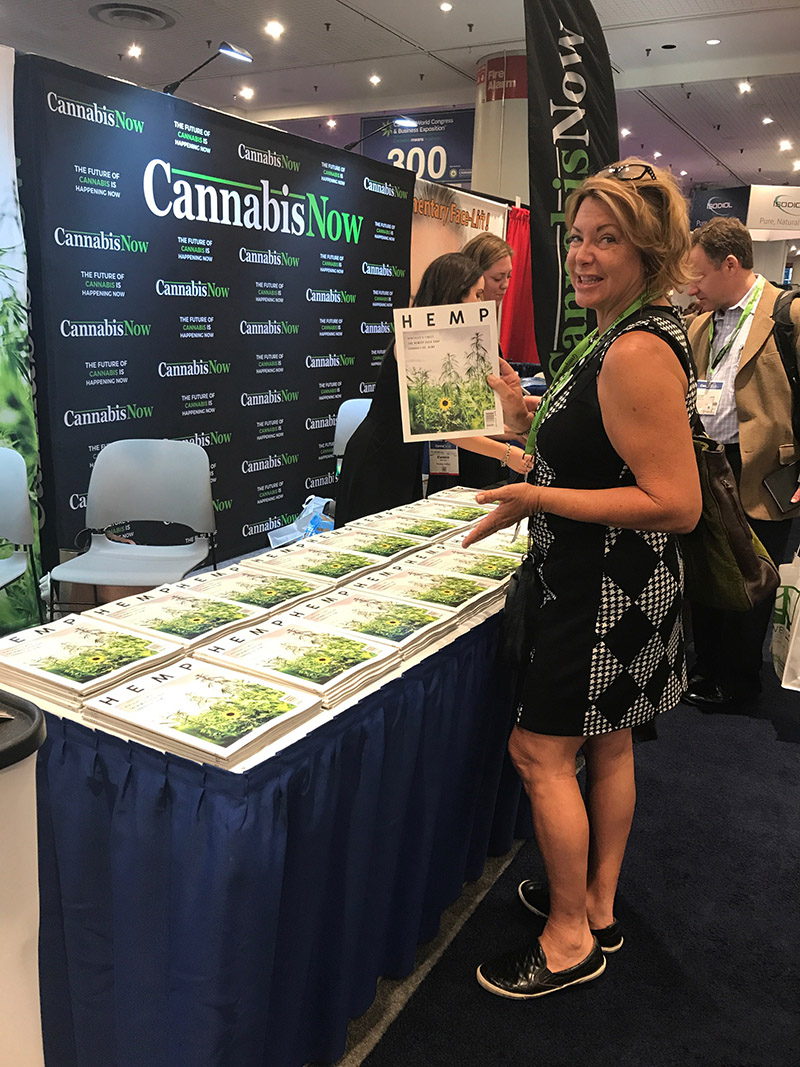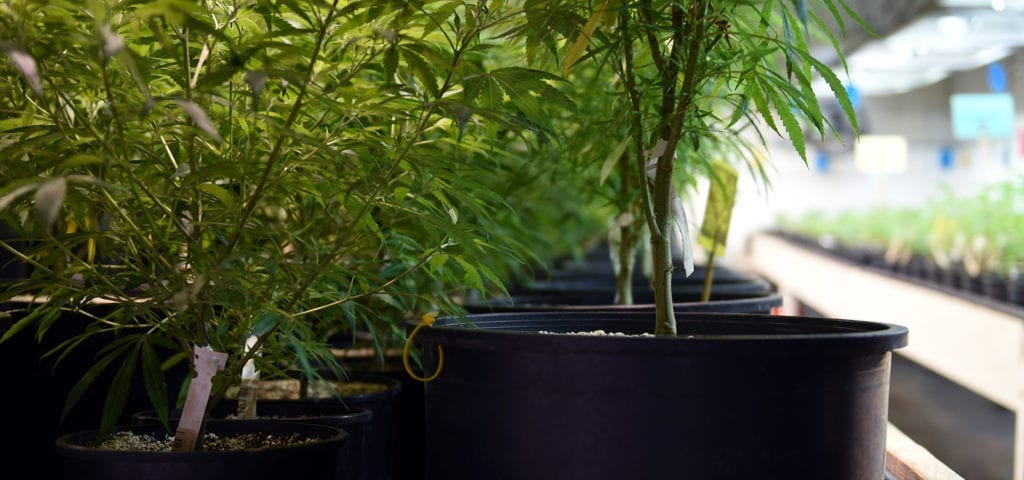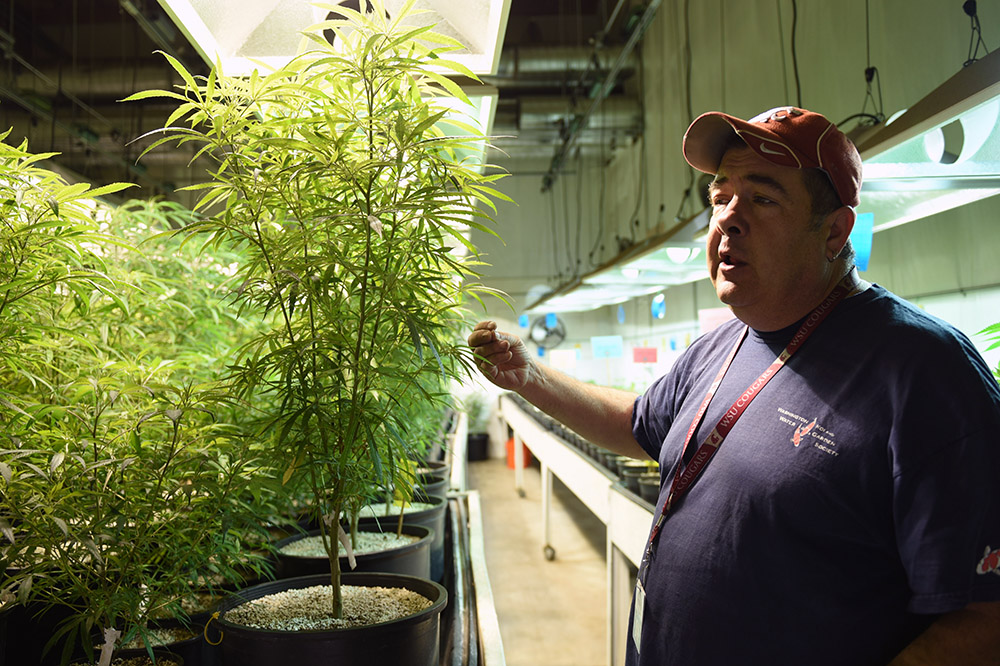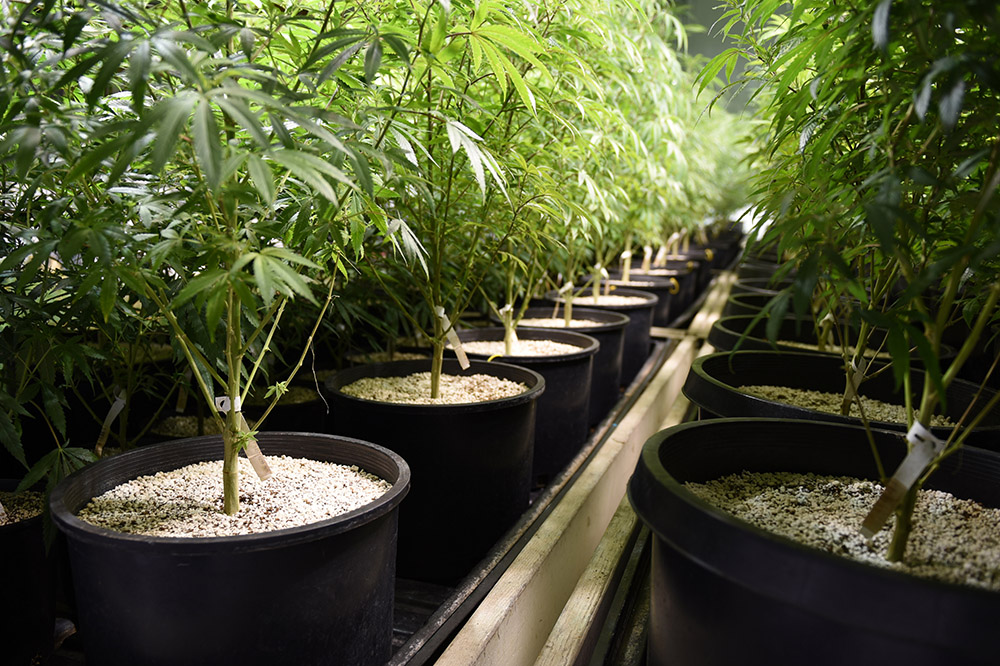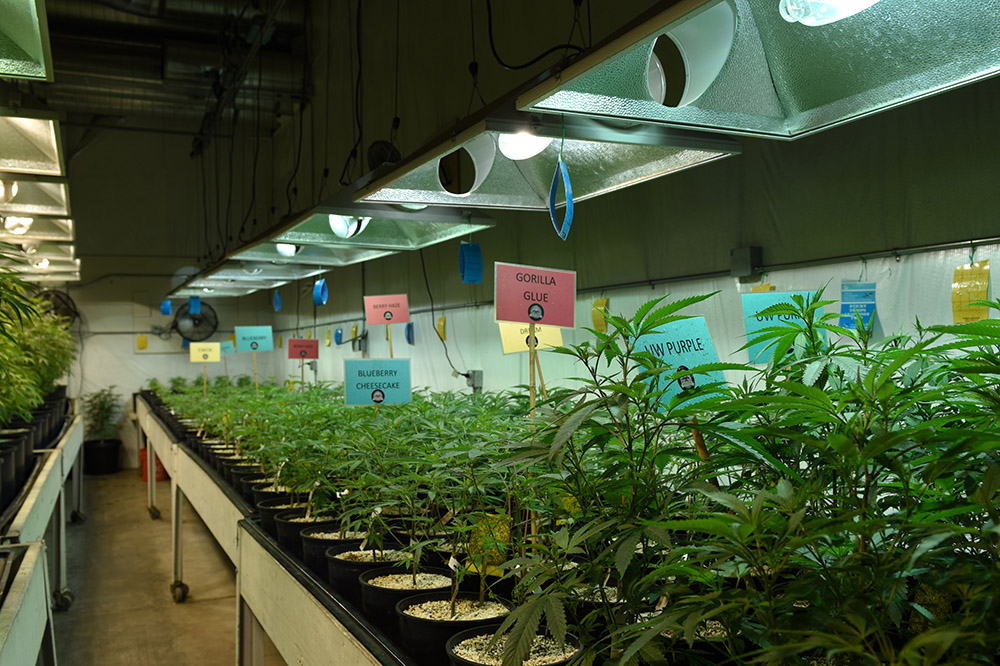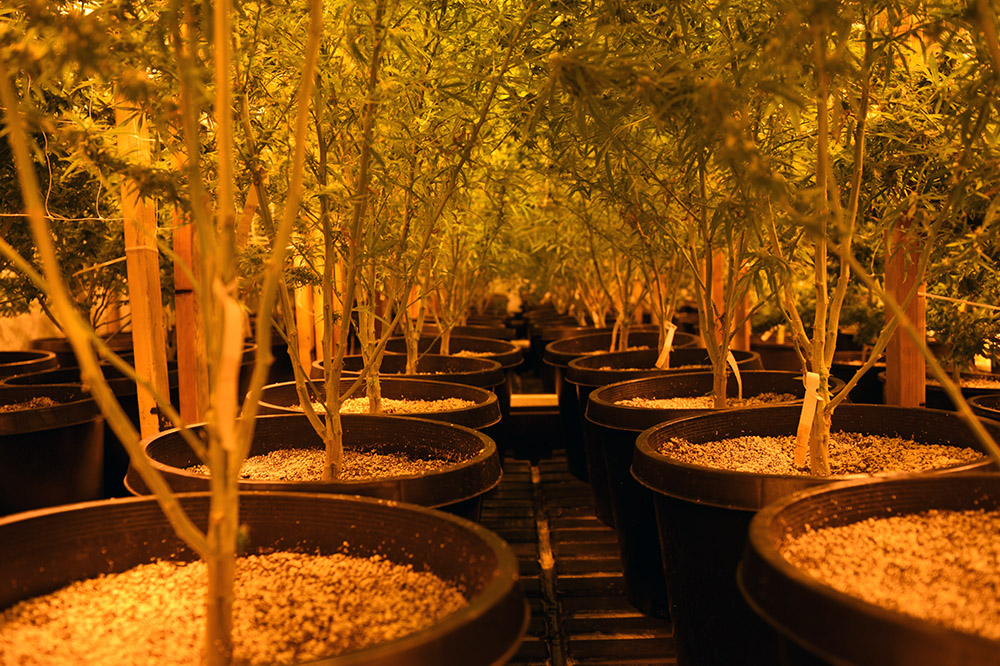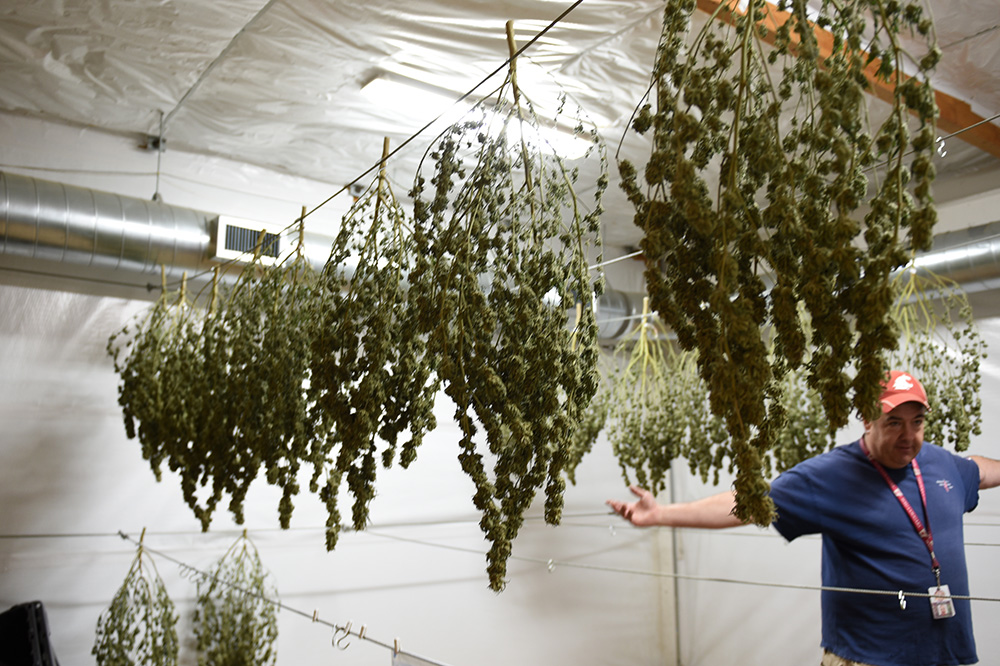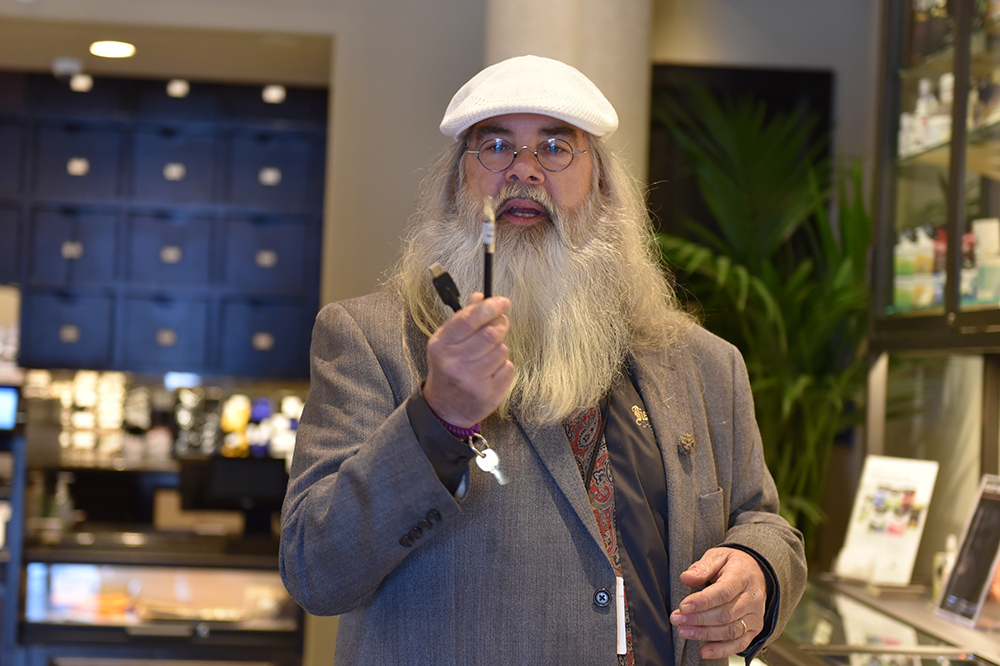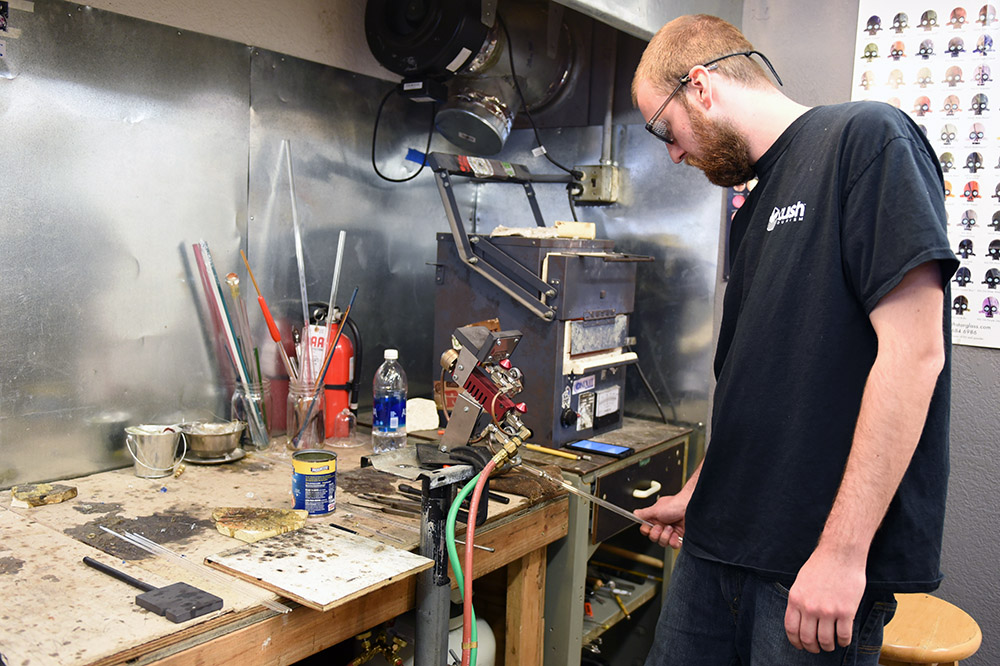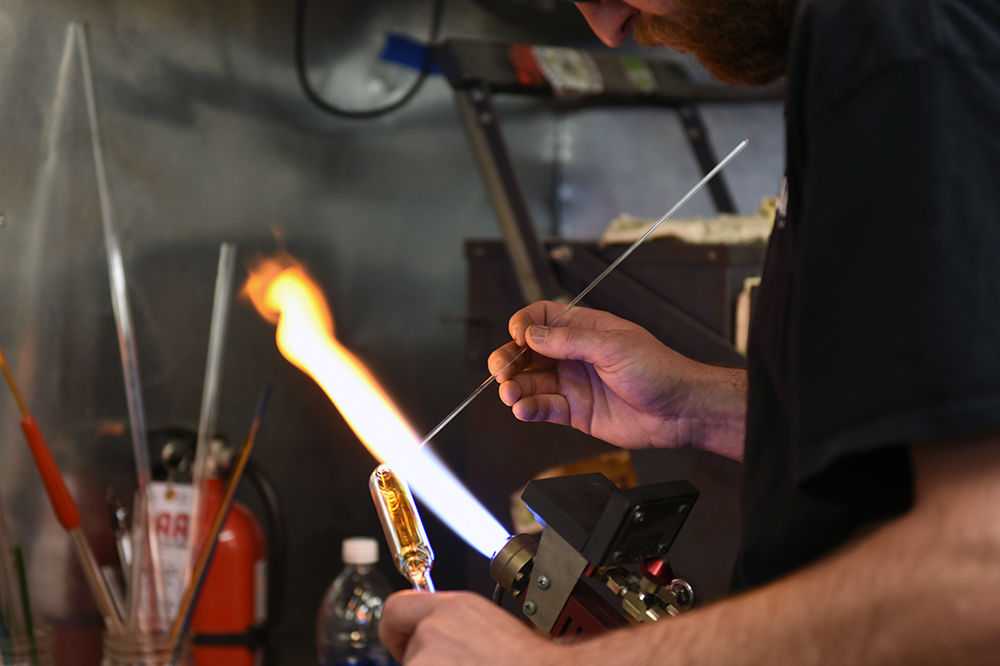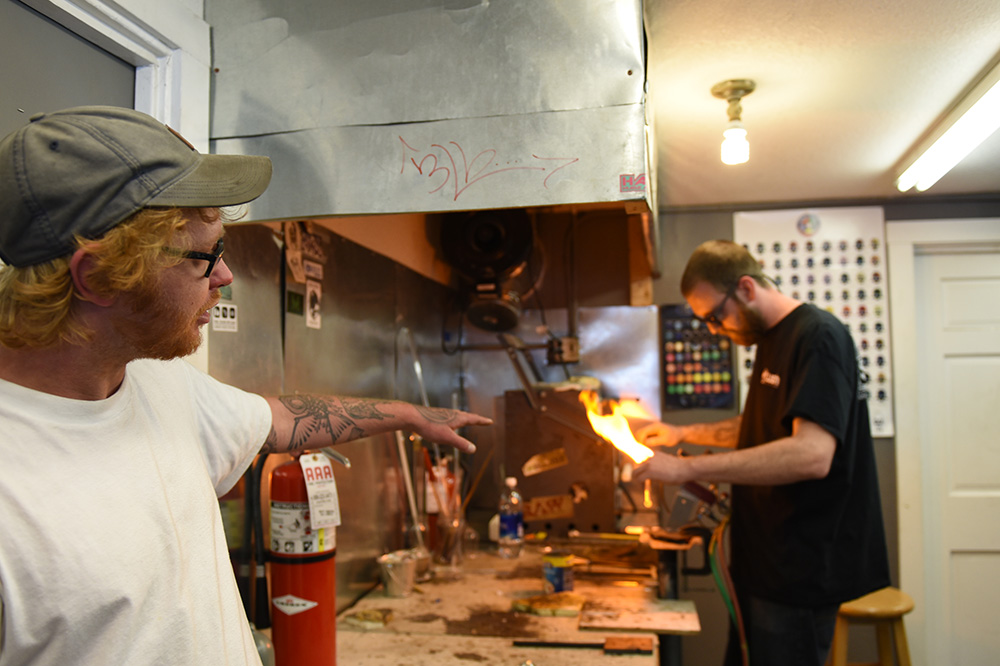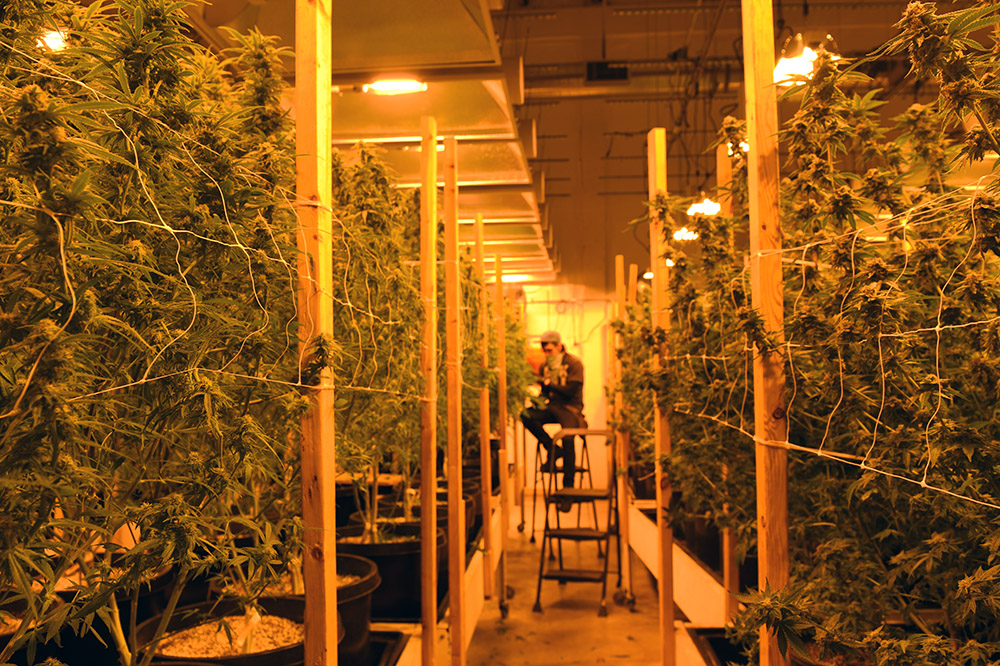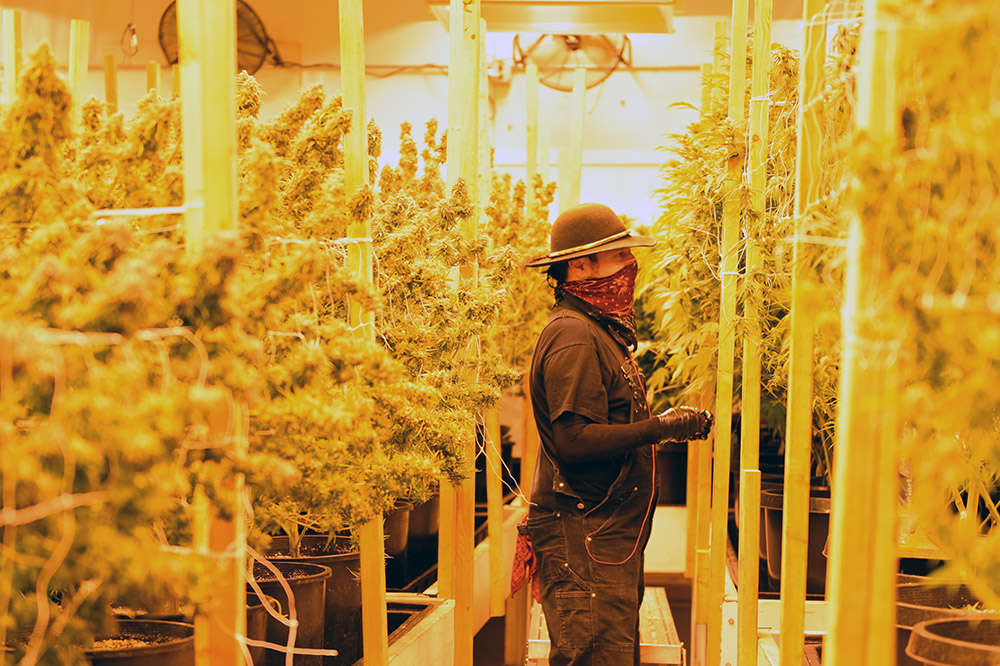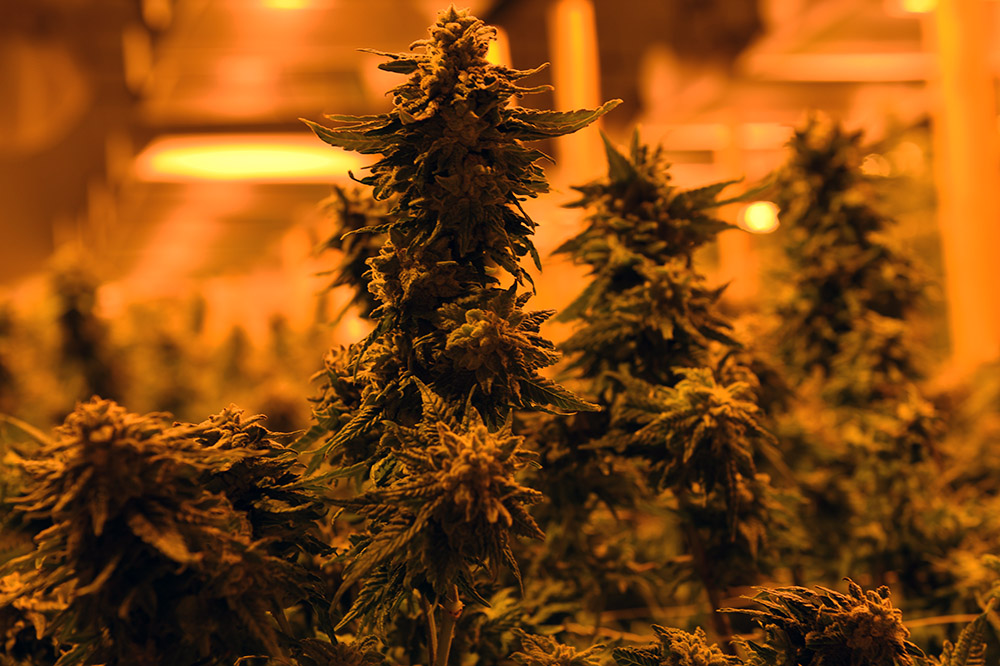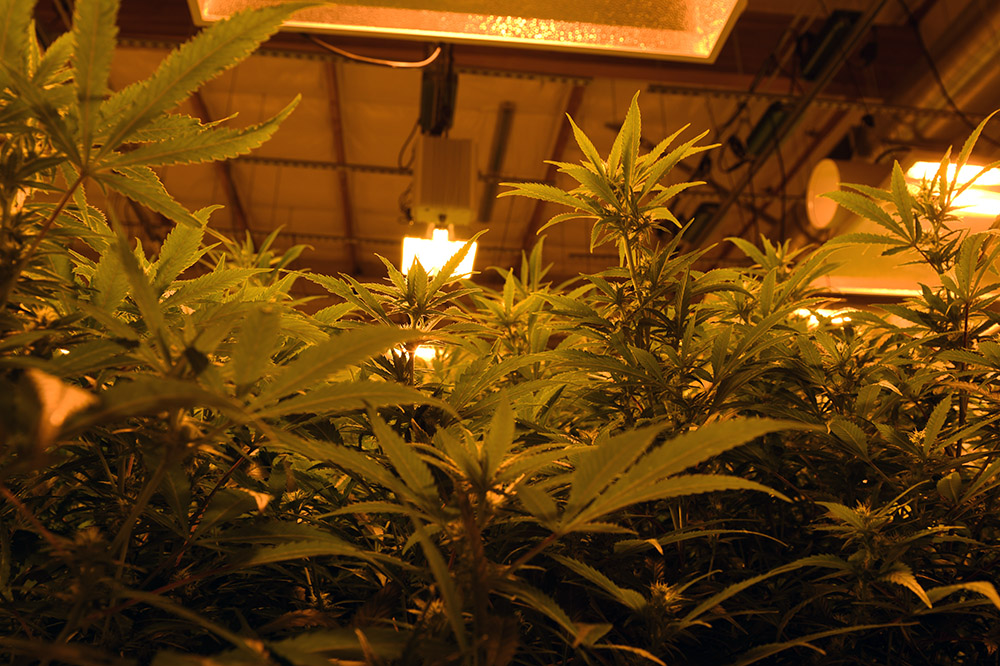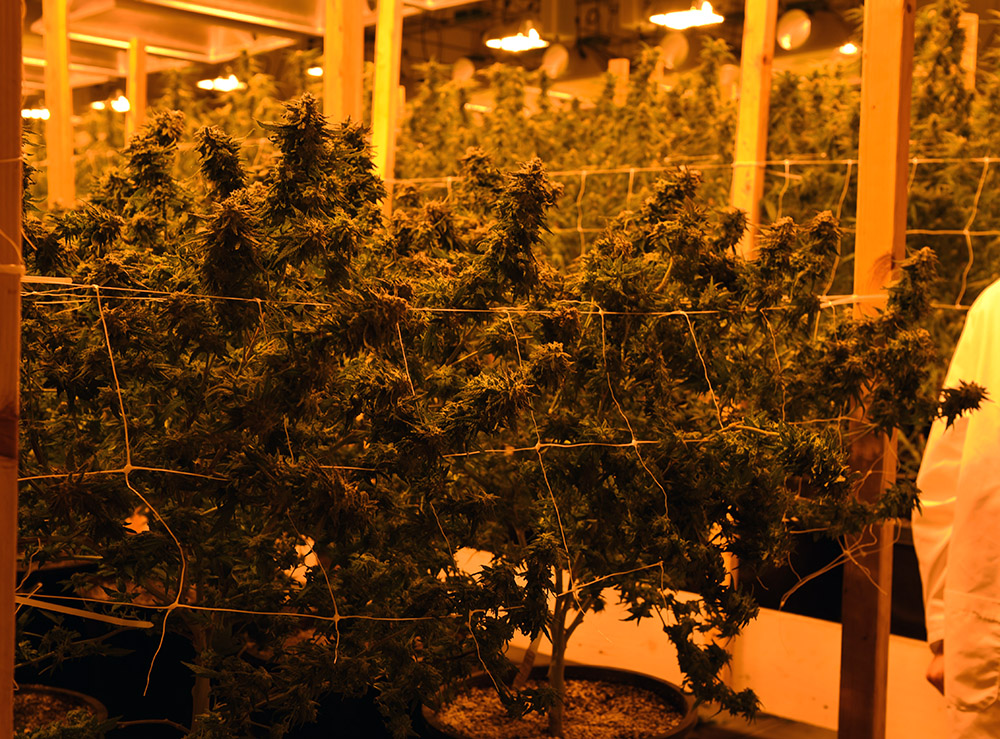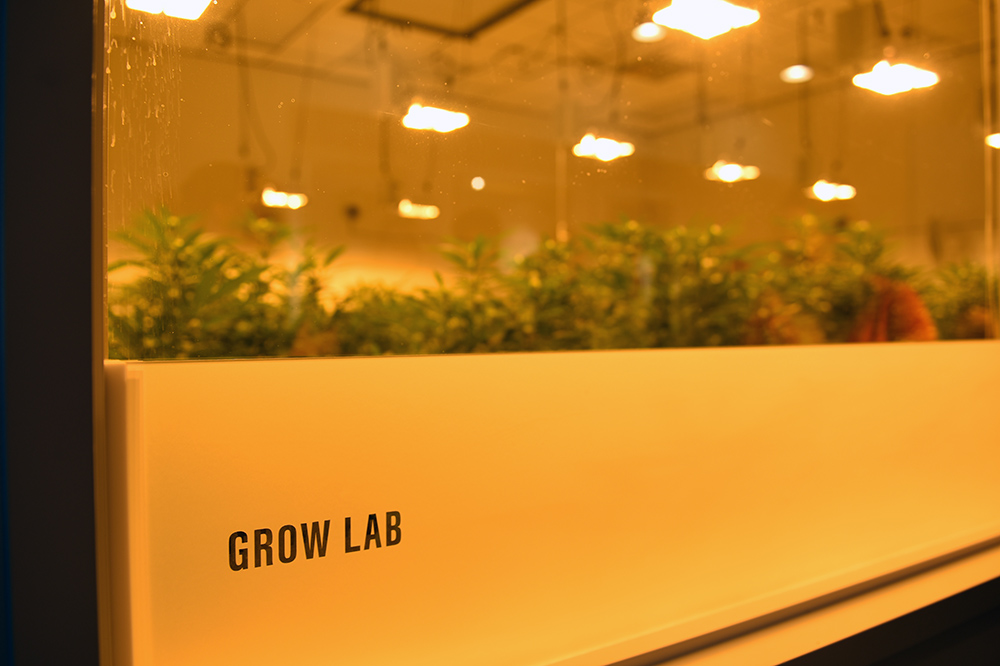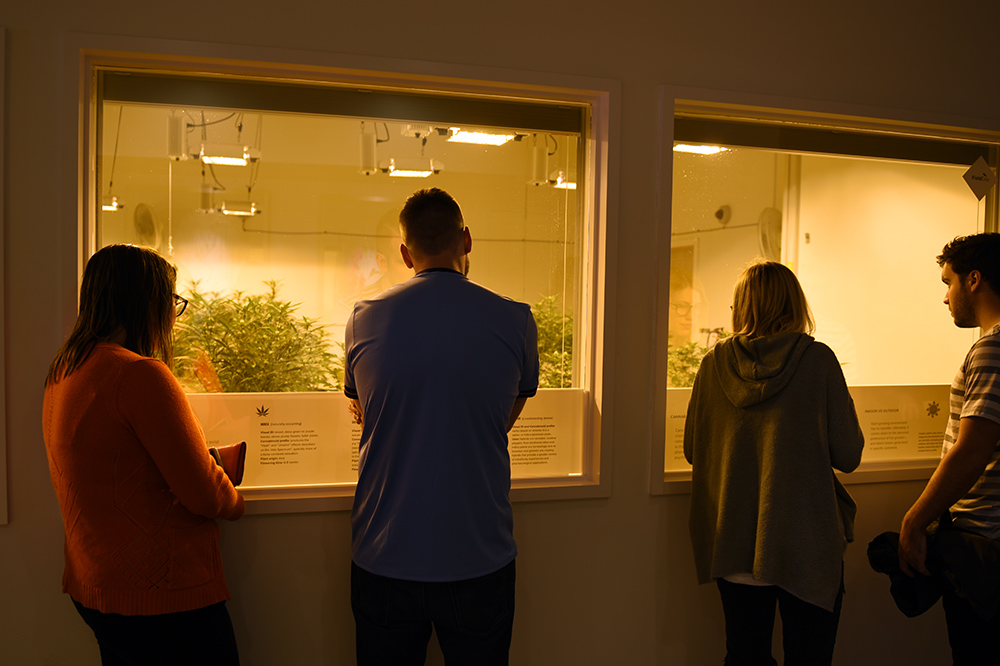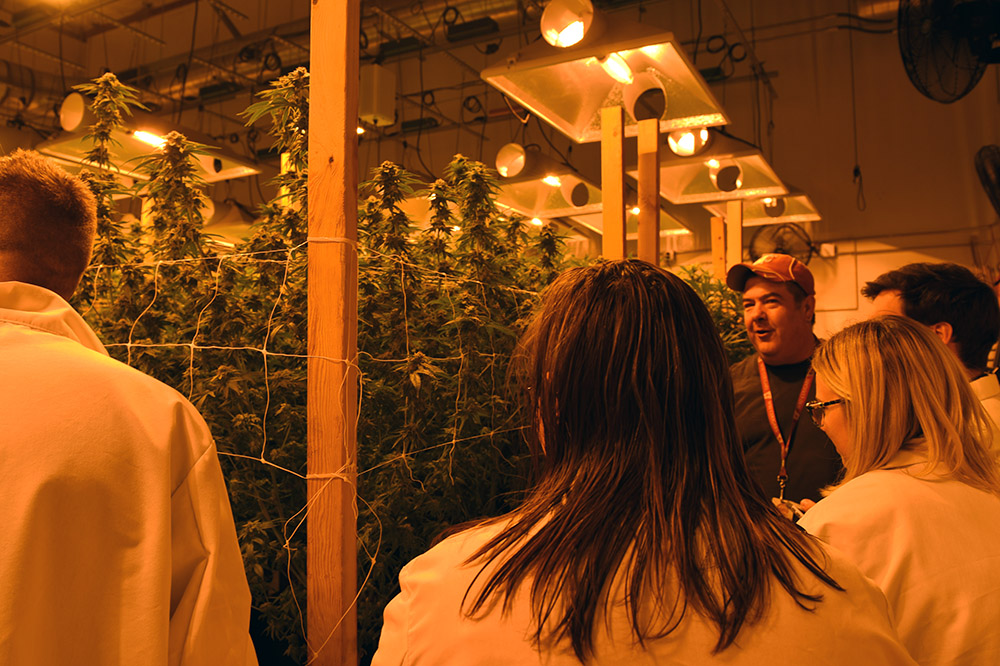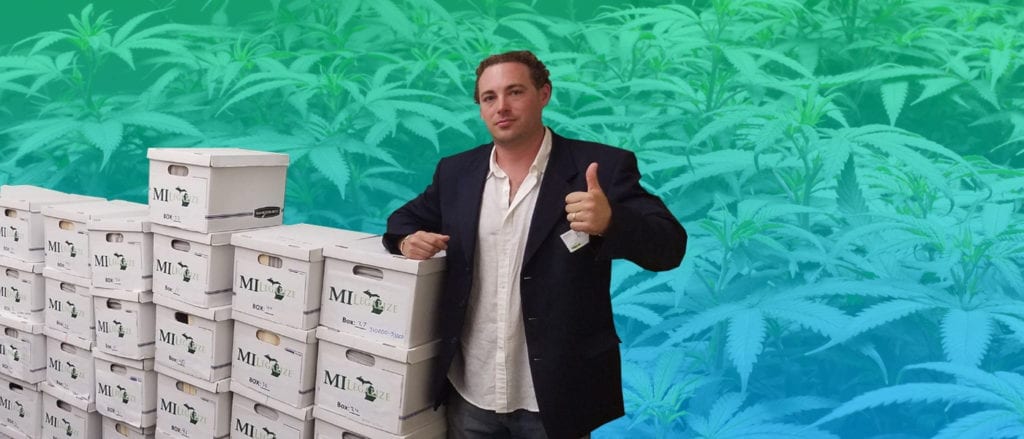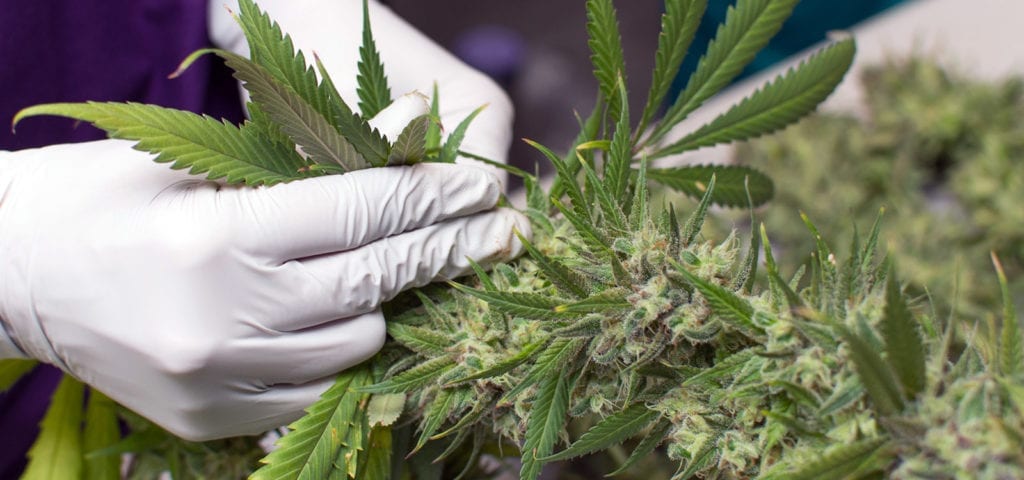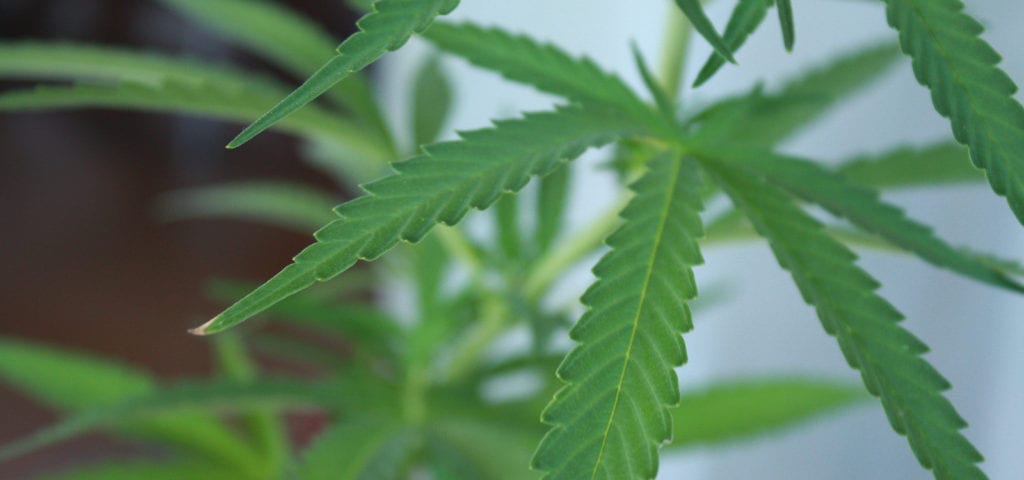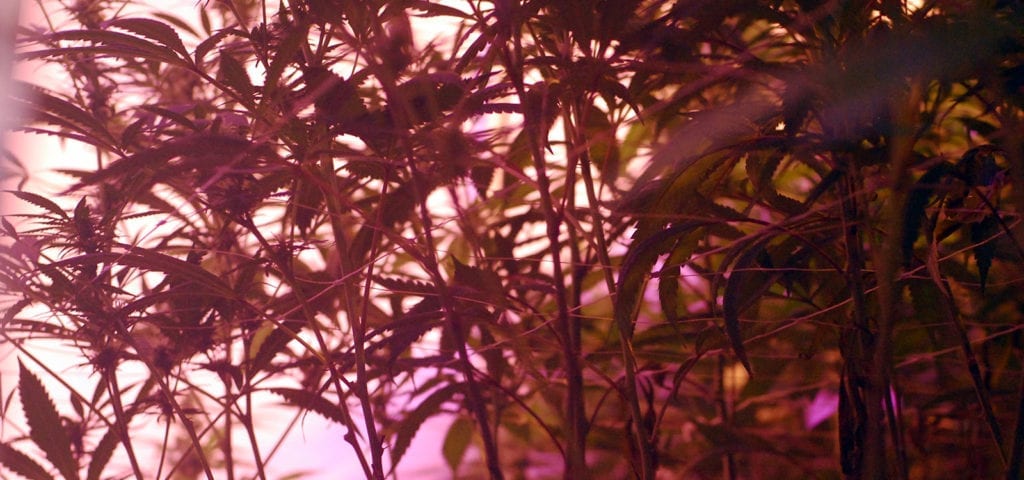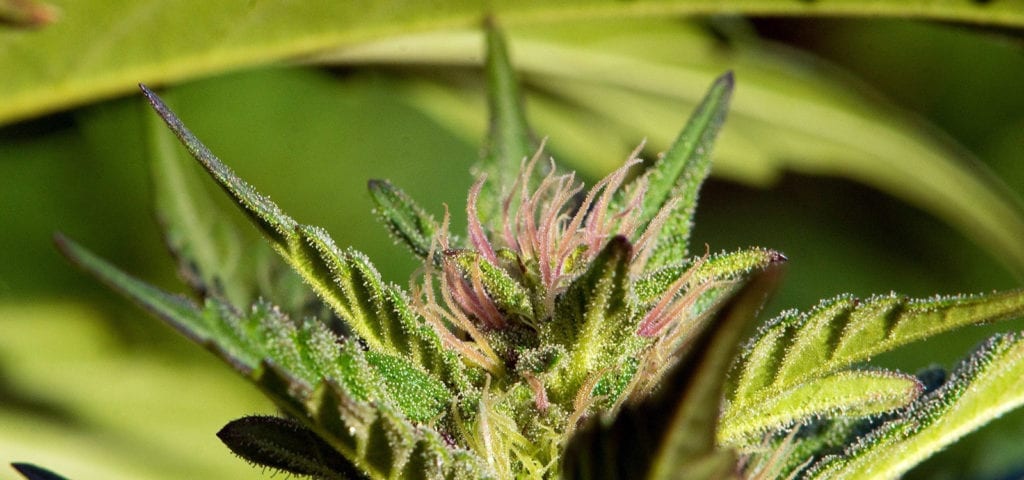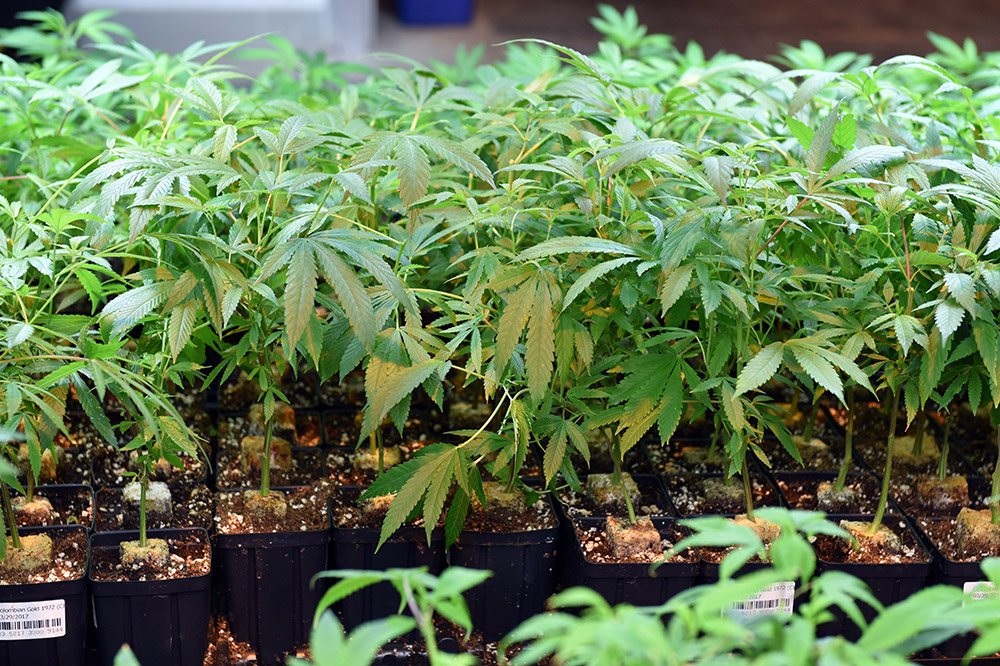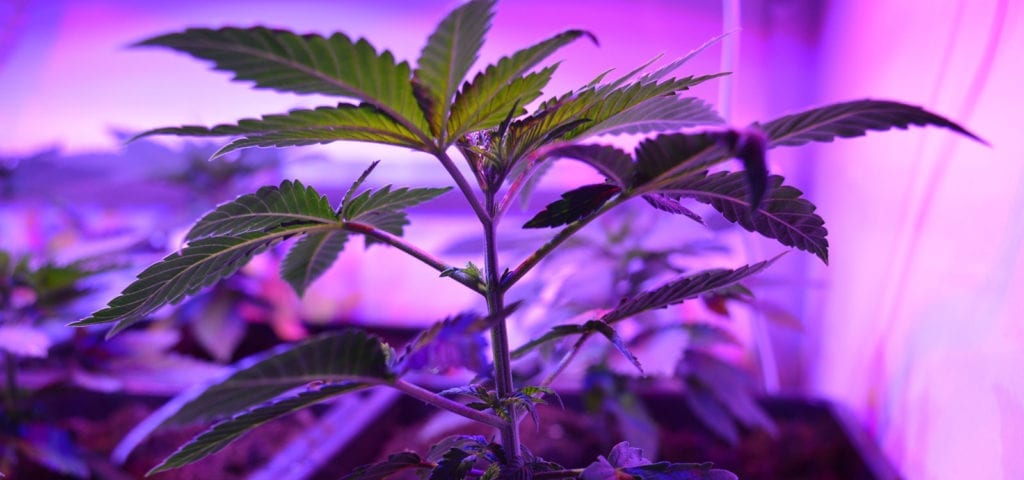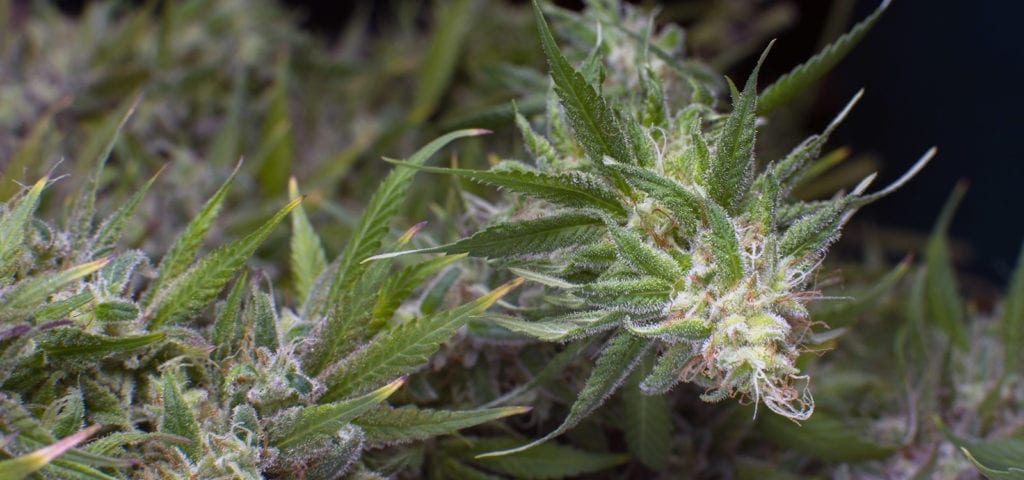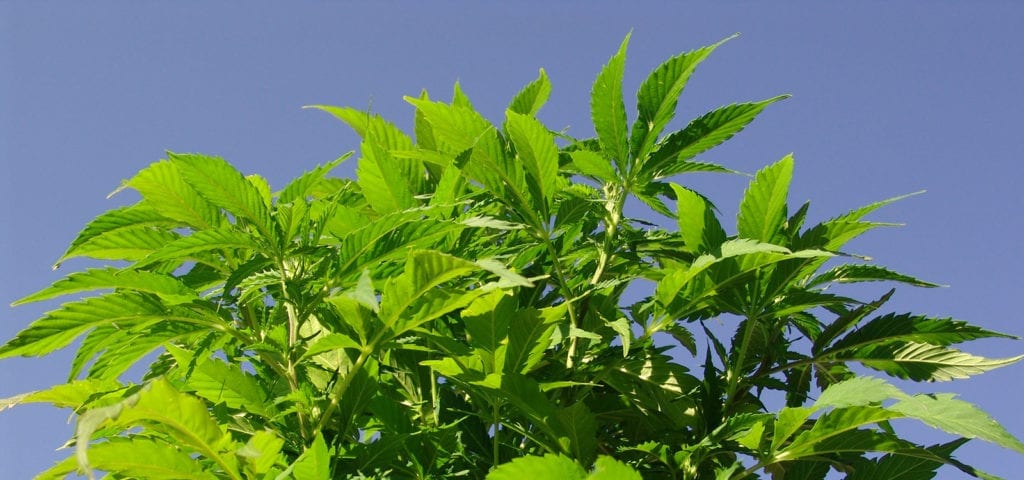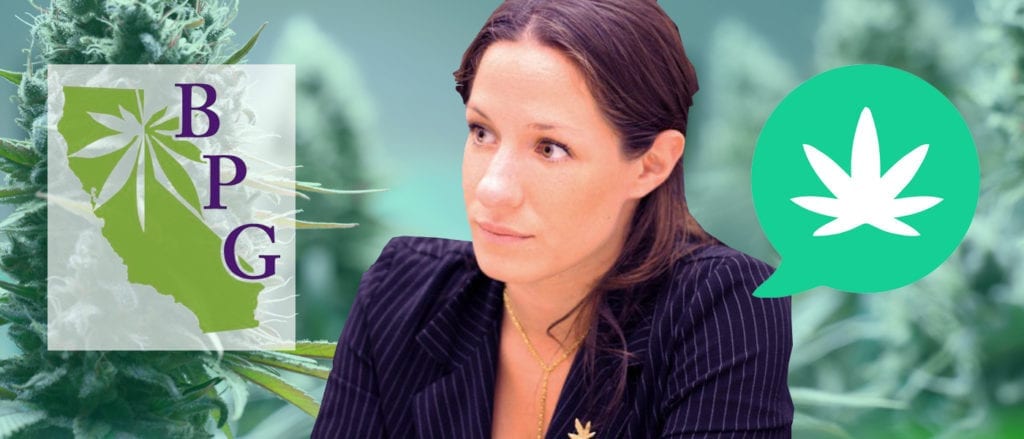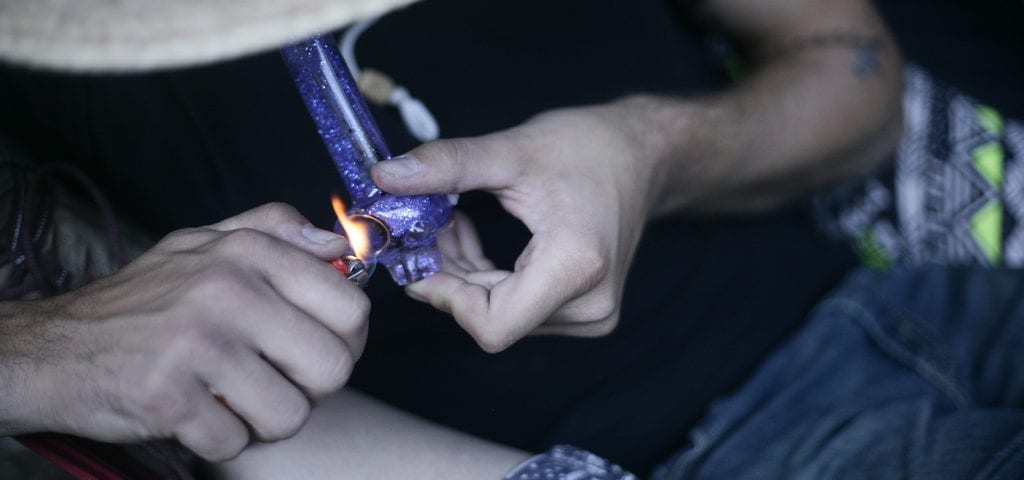Jeffrey Hank is the founder of MI Legalize, the Michigan advocacy group that is spearheading efforts for a 2018 bid for the statewide legalization of adult-use cannabis. Michigan is one of the last major states capable of enacting change via voter initiative that hasn’t yet overruled the prohibition of cannabis — this means that a successful legalization initiative there would be a huge victory in the ongoing battle to reform cannabis laws.
In this episode of the Ganjapreneur Podcast, Jeffrey joins podcast host TG Branfalt to talk about organizing petitioners and activists in their effort to cement their initiative’s place on the state’s 2018 ballot, the history of Michigan’s uniquely difficult citizen initiative process, the state of cannabis reform as it stands throughout the Midwest, how the ongoing efforts in Michigan may influence neighboring states and the federal climate in regards to cannabis legalization, and more.
Listen to the podcast interview below, or keep scrolling down to read a full transcript of this week’s episode.
Listen to the podcast:
Read the transcript:
TG Branfalt: Hey there. I’m your host TG Branfalt, and you’re listening to the Ganjapreneur.com podcast where we try to bring you actionable information to normalize cannabis through the stories of Ganjapreneurs, activists, and industry stakeholders.
Today I’m joined by a fellow Michigander, Jeffrey Hank. He’s the founder of MI Legalize. How are you doing this morning, Jeff?
Jeffrey Hank: Hey, doing great. Thanks for having me on.
TG Branfalt: Hey, man, it’s a pleasure. I had a chance to talk with you a few days ago for an article and now here we are on the podcast. Before we talk about MI Legalize and that whole movement, why don’t you tell me about your background. Who is Jeff Hank? How’d you end up on the forefront of the legalization movement in Michigan?
Jeffrey Hank: That’s a good question. I ask myself that a lot. How I got involved, in a nutshell … and I’ve always been a cannabis enthusiast. I’ve always believed that marijuana should be legal ever since I was a kid. I wrote a paper in eighth grade about it, actually, and back then it was really hard to get information about anything. I had to try to get my dad to go the local bookstore and pick up a copy of High Times, and that was back in the day where High Times was behind a sheet, like it was almost pornography.
TG Branfalt: Yeah.
Jeffrey Hank: You know? Now things have changed so dramatically, but I think what really got me into it was about eight or nine years ago when I started practicing law, and I just had a natural sort of drawing to marijuana law … And, you know, a lot of people I knew were getting in trouble with it, and just seeing the injustices in the court system. So, I got really active right when Michigan’s medical marijuana act first came into place doing both the business end of things, but also criminal defense law. I transitioned more towards the industry side of things now, thankfully, because we’re scaling back a lot of the criminal aspects of these things.
It was just a number of things that led me to think that something had to be done, and then I got involved politically. I ran the East Lansing decriminalization campaigns. These were small grassroots campaigns. Lansing was 2014, and … Well actually it was 2013. East Lansing was supposed to be 2014 but it got bumped to 2015. We actually had to litigate it to get in on a ballot in East Lansing. Each of those elections we won with 65% and 67% support of the people, and those authorized, at the local levels, the Lansing and East Lansing anyway, the use, possession, transfer, and transport of an ounce for adults twenty-one and over.
So, I got involved in that and then at about the same time I had a friend who was one of the Okemos 7, a medical marijuana compliant facility here in the Lansing area, and they were busted by the Feds and he got sent off to prison in West Virginia. I’ve had clients who I believe actually … I had a client I think died once, an elderly client who died of the stress of being prosecuted over petty marijuana violations.
So, you know, you see that stuff time and time and time again, and you know from your own personal experience how safe and useful and even fun or medically healing cannabis can be, and you know it shouldn’t be illegal. I felt, as a citizen basically, I had a duty to do something more about it. So a couple years ago I began to try to organize these other activists statewide. In Michigan we have a particularly active group of people who have decriminalized or legalized at least 21 cities at the local level.
So there were all these people out there doing these things in Saginaw and in Jackson, and Flint and Grand Rapids, but there was no state organization organizing everybody to do something. And looking at it and talking with people, it was a real daunting task. Nobody wanted to take on this major project which had never been done. There was sort of a conventional wisdom that you needed a million or 2 million dollars to even bother attempting to try to make the ballot, so if you didn’t show up with that money to some of these cannabis activists, basically they just discounted the idea that a statewide ballot initiative would ever be possible.
So, I kind of had been going through this over the years and being involved both as a lawyer and as a political activist, and finally things just all kind of came together in one strange way or another. I ended up as the Executive Director of MI Legalize, and the story kind of goes on from there.
TG Branfalt: So let me ask about your law school experience a little bit. You said that you had ended up working specifically on cannabis issues. Was there anything in your law school training that prepared you for that, or was that something that you really undertook on your own accord?
Jeffrey Hank: Yeah, it was really on my own accord. We rarely discussed marijuana in law school. When we did and I had a chance to opine on it, I would always say that marijuana laws were unconstitutional. So, I just had that disposition, and having a lot of friends into cannabis, looking to get in the industry end and also just getting in trouble, it was just sort of natural. People would come to me for legal assistance and then it became a career. So, nothing in law school prepared for whatsoever. I don’t know if that’s changing these days, but I’m kind of hoping it is, that in the next few years they’re not even talking about marijuana being a crime in law school.
But yeah, it was all … everything I got into was sort of on my own in conjunction with other people, and sort of just evolving with this cannabis culture. I just said a few minutes ago, I remember back in eighth grade where it was hard to get a copy of High Times locally. There was like two bookstores that had it, and you wouldn’t even want to go to a grow store because if you went to a grow store, you’re probably under the surveillance of the police. You know? But in that short period of ten, fifteen years, the culture’s changed dramatically, where even though in Michigan 20,000 people a year are still arrested for marijuana, there’s a lot of people who feel and act almost like cannabis is legal, particularly with the medical situation. Now of course, it’s not, but that’s how rapidly the consciousness is changing, where these things are sort of open now. So I’ve just kind of evolved along with that, with the cannabis culture, like so many other people.
TG Branfalt: So why don’t you give me a brief history of cannabis policy in Michigan. We have medical out here, but it’s kind of a gray market. It was … They’re putting legislation to fix that. So why don’t we just start with a brief history of cannabis policy in Michigan, and what the medical marijuana laws are and how those are changing because of legislative action.
Jeffrey Hank: Right. So if you go way back, you can go back to John Sinclair days where he was actually in prison for selling two joints to an undercover officer. The Michigan Supreme Court struck down the law and for a short period of time, there were no laws against marijuana in Michigan, and that was the genesis of the Hash Bash in a nutshell.
Flash forward to 2008 … You had Michigan’s Medical Marijuana Act come into place, which really changed everything in a good way, really. There’s still been a lot of problems with it, but it opened the door. And a lot of people don’t like that. There are people who supported marijuana as medicine and there are other people who said, “Look, this is the way legalization comes.” And you know, when I voted for it back in 2008, I thought that … that, hey, I’m happy to vote for this because I’m hoping that legalization does come.
So we had several years of a wild west, if you will, for lack of a better term, where the state didn’t really know how to handle it, local governments didn’t know how to handle it, and it was sort of wide open to anybody to just do what you wanted to do within the confines of the law, which were very vague and gray, as you said. That’s caused a lot of problems. For some people it’s been a blessing, for other people it’s been a curse. Law enforcement … if you happen to get in on the wrong end of the gray area of medical marijuana, you know, it can ruin your life.
So we’ve been through this for years and years. Last year, the state enacted this new Medical Marijuana Facilities Licensing Act along with a couple other supportive acts, which will license these five categories of cannabis commerce businesses, cultivation facilities, processors, safety compliance facilities, which are like testing labs, transporters, and provisioning centers, which are often called dispensaries colloquially.
So, that’s kind of where we’re at. You know? It started with the Medical Marijuana Act that did not have any sort of framework for commercial dispensaries, so … We’ve had dispensaries in Michigan for quite some time, but they operate in this legal gray zone, and now that’s being clarified.
TG Branfalt: How did you guys react to the legislative action?
Jeffrey Hank: So, for MI Legalize it was a strange, strange day because we had … On June 1st 2016 we turned in 354,000 signatures, which should have been enough to put us on the Presidential Election ballot where President Trump was elected this last year. We were kept off the ballot by the state, and we litigated that all the way to the United States Supreme Court and did not get any relief. However, the Michigan Supreme Court … The biggest day really was September 5th and 6th or so when the Michigan Supreme Court made its ruling to keep us off the Michigan ballot. That was sort of the last big chance for us to be on the ballot. The U.S. Supreme Court would have happened after the fact, probably, and it would be 2018. So, that very next day … Literally after eight or nine years, almost, of no action by the legislature, no concrete action to actually create a regulatory system for medical marijuana … The day after we were denied by the Michigan Supreme Court, the state Senate, run by conservative Republican legislators, pushed out this bill.
So, it was a strange day. On the one hand we celebrated it because it was a step forward for many people, but I describe it personally as akin to the people being robbed of their election the day before, and then the next day the king and his minions throw out some bread crumbs to the peasants. We were supposed to have a law which would have completely legalized marijuana, which would have created this regulatory basic skeleton structure for a system, which didn’t have secure transportation of marijuana or a lot of this other heavy bureaucracy.
So for us, it was like … It’s hard to describe, because on one hand you’re happy to see that things are moving forward. I mean, we went from a law which allowed people to grow 12 plants personally or 12 plants as a caregiver for a patient who … You could apply for a 1500 plant license, and as of now there’s no restriction on how many of those licenses you can have. So, yeah, you get excited and happy to see that maybe people are going to be growing 10,000 plants or something. That’s great, and it’s going to take people out of the legal gray zone, but it wasn’t the way we would have drafted the law. And statements were actually made that because we were not going to be on the ballot now, some of these Senators actually felt comfortable moving forward because we wouldn’t have had these conflicting laws.
So it’s a very strange scenario. I have the word to describe it … It’s hard. It’s really hard to say it. I’m trying to think of the right word. It’s bittersweet, perhaps, is the word, because you’re happy on the one hand, and on the other hand it’s kind of a slap in the face. But that was an initial reaction the morning after we had just been denied by the Supreme Court, which was a serious blow not only to MI Legalize and myself, but everybody else who worked very hard to make this happen.
TG Branfalt: So why don’t you briefly tell the listeners about, in a nutshell, the 2016 campaign that was thwarted in the courts and by legislative action, because I think that it’s important that people understand exactly what happened to a campaign that had the petition support. It had the signatures.
Jeffrey Hank: Right. So, it’s a long story, but to … You have to have the history to really understand it. So I’ll try to make this as quick as possible. Going back to the 1963 Michigan Constitution … Citizens in Michigan had a right to place constitutional amendments or statutory initiatives on the ballot, and there was no time period restriction on their ability to do so. If there was any, it was the period between gubernatorial elections, which is four years. That’s the way petitions were done in Michigan until approximately 1972 when there was a woman in Grand Rapids who came close to succeeding, putting an initiative on the ballot that would have restricted legislator pay and pensions. And as a result of that, the legislature actually changed the law at that time to allow for only 90 days to petition. So you went from either a four year …
TG Branfalt: Wow.
Jeffrey Hank: … if not infinite time to 90 days. It caused a big brouhaha at the time. It was done by legislators
to stop a petition that was going to take away their pay, basically. Around that same time period, Michigan’s famous Attorney General, Frank Kelley, who’s called ‘the people’s Attorney General’ because he served here so long and he had so many substantial civil rights issues come about during his tenure … Frank Kelley issued an Attorney General’s opinion declaring that law unconstitutional … saying that the legislature could not limit the time period for Michigan citizens to petition. So for 13 years the state didn’t enforce that law and people had this longer time period to petition.
So flash forward to 1986, and there’s two more petitions that are sort of controversial to the political establishment. One was to enact a death penalty in Michigan, which … We were the first state in the Union to ban the death penalty. We’ve never had the death penalty at a state level in Michigan. The other was to allow citizens to vote on utility rate increases, which the power companies didn’t like. So, Consumers Power Company actually sued and they went to the Michigan Supreme Court to enforce this new law, which said that a signature over 180 days had to be validated again to prove the person was a registered voter. So you could petition beyond 180 days, but you just had to go through a separate validation process. So for 13 years that law was not enforced, Consumers Power sued to get it enforced and kept these things off the ballot.
In that same year, 1986, Michigan’s Board of Canvassers came up with a rule, their own policy, on how you validate those signatures, and they had two ways to do it. You can either get everyone to sign again, sign an affidavit saying they’re registered to vote, or you would go to the local clerks, of which there are 1500 in Michigan, and have them validate the voters’ signatures. So for 30 years, nobody tried to do this. We looked at it and we said, “Look, we’re a grassroots campaign.” … And to make the ballot in Michigan, and there were 13 campaigns that tried to do so last year … Nobody made it. That’s how hard it is to do because it normally does cost a couple million dollars. It’s very hard to have a dedicated group of citizens work full time for six months all across the state.
So we looked at it and we said, “Well, this is interesting. The law gives us this option. No one’s tried it in 30 years because it was so hard to do.” But what we were able to do was we hired some consultants and some computer people, and we were able to use modern technology, basically, and a lot of elbow grease, and actually verify every single signature.
TG Branfalt: Wow.
Jeffrey Hank: So when you turn these signatures in to the state, they only do a sample and they check 500 to 4,000 of them to do a sample to see if they’re valid. We checked every single one of them in preparation to have these local clerks do it, and we went to the Bureau of Elections and we actually testified, and we testified in the Legislature about this … Once the state realized we were about to qualify, the Legislature again decided to change the law. This is 30 years later now where they began to decide to try to restrict it to just a firm 180 days, which means we would lose approximately five months worth of our signatures. So we continued to lobby the Board of Canvassers to change this rule. We went to them and we said, “Look it, you know it doesn’t make any sense for us to have everybody to sign an affidavit again. We might as well have them sign the petition again.” Except in Michigan, it’s a crime to sign a petition twice …
TG Branfalt: Ahh …
Jeffrey Hank: So we’re not going to tell people to do this and possibly go to jail. The Bureau of Elections agreed with us, and they said, in writing, under oath, we had more than 180 days to petition. So we then said it’s very laborious also to go around to 1500 local clerks and have them validate all these signatures, especially when Michigan law provides for a centralized database, which wasn’t created until 1998.
So basically, we kind of came along, we put these different laws together and the pieces of this technology, and we realized that no one had just tried to do this because they thought it was too hard or too difficult, or maybe just were unaware of it. That was more likely. Most people didn’t realize you could even do this. And when we showed we could do it with the technology, they shut us down. They not only did not … The Bureau of Elections staff actually recommended three different new rules, which would have made it easier for us to validate these signatures, because everyone acknowledged it was kind of absurd and almost impossible to do. And that’s how it was designed in the 1980’s. It was designed to make it impossible to do, so nobody did it.
Well, we figured out a way to do it, and the result was the Board of Canvassers … It was a four person appointed board, two Republicans, two Democrats … They split 2-2. The Democrats supported changing the rules, the Republicans didn’t, but when it came down to it, because it’s a 2-2 split, no action occurs. So they never adopted a new rule. At that same time, the Legislature passes a new law. Six days after we submit our signatures, Governor Snyder signs it, and it’s used as basically a justification not to count our prior signatures, not to create a new rule for us to do it.
So a lot of people get confused about it, and the media will sometimes report that we didn’t do it in enough time or we didn’t have enough signatures, or whatever. That’s not true. We did have enough signatures and we did do it in enough time. The law actually didn’t go into effect until six days after we turned our signatures in, so it’s not really accurate to say that new law prevented us. It basically, though, was used as a justification for the Board of Canvassers to not take any action to count our signatures. So we filed the lawsuit and the first judge of the Michigan Court of Claims, which are not required to give you a hearing, they didn’t even give us a hearing despite these hundreds of thousands of Michigan … We had over 100,000 extra signatures we submitted …
TG Branfalt: Wow.
Jeffrey Hank: … and we didn’t even get, with five lawyers on the case, we didn’t even get a minute in front of the judge. The judge sits on the case for two months, and then denies our case, says we make a good argument, but fails to address any legal issues we bring up. And of course, we appeal it all the way up to the U.S. Supreme Court and never get any relief.
So, you know, very frustrating when you put all this work in, spend a lot of time, money and energy. But the great thing about that, TG, is it brings us to where we are now, because having done all that, we’re prepared to go forward and we’ve established this network and this experience and all these activists statewide have been brought together. People know each other now from the UP to Detroit and from Grand Rapids up north, down south, east and west. We’re connecting people, and people … Now that we’re on this new petition, we even have … I say this all the time. I have little old ladies who will come up to me, sometimes in the grocery store or something, and they’ll say, “I saw you on TV last year. I remember what they did to you. I remember what the Governor did to you,” or whatever, and they’re saying, “I don’t even support marijuana necessarily, but that’s not fair play.” And they’ll want to sign the petition this time around.
And the other amazing thing about it is … You know, the state delayed us now for two years. I think we’re going to be on in ’18. I think we’re going to win in ’18, but they put this idea now in so many people’s heads that they don’t play fair and that they’re trying to suppress progress on marijuana law … That I think you’re going to see above a 60% yes vote if not 70% by the time we get to 2018, because people are tired of Michigan government, they’re tired of both parties and getting jerked around, and this is a perfect example of our democracy being sort of undercut.
I mean, we led a true citizens-led campaign. One of the fair criticisms people can make about us is that we were disorganized or that there wasn’t a central sort of process. I get that finger pointed at me a lot, which is okay, but I like to tell people, “You know, well, that’s because we weren’t a multi-million dollar campaign funded by some billionaires or by the Koch brothers or by organized labor or somebody.” We were a true citizens group, and there hasn’t been a true citizens group that’s filed a petition in Michigan in decades, because it’s so hard to do and it takes so much money. Now, we did raise some money and we had one substantial large donor that helped us get to that point, but it was all done by blood, sweat and tears. And because of that, I believe we have created the conditions amongst the Michigan public that they’re ready for this, and they’re even more ready for it because of what they saw happen.
And you know, this all ties into bigger picture issues of trusting the state and the Governor and Flint, and all these other things. So I could go on and on and on but … That’s where we got to where we’re at today and people are really excited now. We had no help from national groups and as a result of what we did last year, a lot of people had said Michigan was on schedule with the national groups for 2020. We bumped that up to 2018. We’re one of the last big initiative states. There’s only 24 states in the country which have the initiative process, and when it comes to marijuana, most of the big ones have already gone … Florida being the exception, but Florida requires a 60% vote of the people to change the law. They just squeaked medical by recently, so I imagine you’ll see Florida and Ohio coming up in 2020, if not before then.
But Michigan is sort of the target, if you will, for people who support cannabis reform, and probably will become the target for some opponents also now, because we’re the last big state save Florida and Ohio, which are not teed up right now. So, we showed the country we’re ready, we got a lot of great support from people, everybody from … Moral support … You know, we didn’t have the financial support, but everybody from Tommy Chong to Willie Nelson … Willie Nelson’s got a great video out called ‘I’m Not Dead Yet’. He’s drinking out of an MI Legalize coffee mug in the video, and he’s in Southern Living magazine doing interviews drinking out of it.
TG Branfalt: That’s great.
Jeffrey Hank: We had Tommy Chong show up at the Hash Bash, and DJ Short and … All these other cannabis personalities saw what happened here, and DJ Short who has given some of my favorite public talks on this … He even did a speech at Hash Bash this past year, and he talked about Michigan in particular. We try to create a model here, and we look at this sort of like the cannabis industry is at a crossroads. We try to prevent the Responsible Ohio type situation here in Michigan. There were similar people who wanted to create a very exclusive market. We call it sort of monopoly market type provisions. You know, having ten or twelve big growers in the state … We want the exact opposite here. We want everybody to be able to participate in this if you’re an adult.
We fought very hard for that, and so we kind of like at Michigan as a litmus test. We could see states going towards very restrictive models of control, even the state owning dispensaries and things like that … Places like Pennsylvania, that’s how they handle alcohol. And then you have states doing CBD or smokeless-only products, so all these reforms could go one way or another. They could go towards that very tight, regulated model, or they could go towards more what we like to call a people’s model. And that was our goal. So we hope that with Michigan … We try to be careful how we talk about this, but since I’m talking to you here at Ganjapreneur and your listeners are hopefully mostly pro-cannabis … We believe this is the best cannabis law to date in the United States for several reasons.
TG Branfalt: I want to talk to you a bit more about some of the details on the ballot, and then some of the pitfalls and what goes on with the whole process, but before we get into all that I want to take a short break. This is Ganjapreneur.com podcast with TG Branfalt.
This episode of the Ganjapreneur.com podcast is made possible by Name.com, a global provider of domain name, web hosting, and email services. Every successful cannabis business needs an online presence, and every successful online presence begins with a domain. From your website to your email address, a good domain is easy for your customers to remember, it looks nice on a business card or billboard, and it reflects the true identity of the project it represents. It’s important to reserve your domain early on when you are starting your business, as you may find that the .com address for your preferred brand or concept has already been taken. If somebody has already purchased the ideal .com for your business, they might be willing to sell it, but if they aren’t, you may have to get creative with one of the new alternate domain extensions such as .co, .club, .shop, or even .farm. Reserve your domain name today at Name.com/ganjapreneur.
If you are a domain name investor or a venture capital firm interested in acquiring or advertising premium cannabis domains, go to the Ganjapreneur domain market to browse a wide variety of names, including Strains.com, CannabisMedia.com, MJ.com, and countless others. Discover branding opportunities for your next startup and learn about listing your premium domain names for sale at Ganjapreneur.com/domains. Sponsored by Name.com.
TG Branfalt: Welcome back to the Ganjapreneur.com podcast. I’m your host, TG Branfalt here with Jeff Hank, founder of MI Legalize. Before the break, you were talking about the new push in Michigan, your new ballot initiative. Before we get into the details of that initiative, can you tell me more about the process? I see all the time on Facebook you guys are offering training courses and meetups and things like that, so what are these training courses like and what do you guys, you know, discuss when you get together?
Jeffrey Hank: Yeah, absolutely. We’ve got a great team of people working on this, and some of them are volunteers, a few of them are staff. What we learned is that everybody … so many people want marijuana to be legalized. The problem is getting people actively engaged to work to make that happen, or getting them to write the big checks necessary to pay someone else to do the work. Because it just can’t … I don’t want to say it can’t be done by volunteers, but it is an enormous task, which is really more suited to almost a corporate model of running a campaign. You have to have bodies in the street, working. So those people who are doing that have to be efficient and they have to be trained well. We lose a lot of signatures from people just because they don’t know how to petition. It’s not something that most people do. Everyone’s aware that you can petition, but most people haven’t actually done it, and it’s an interesting thing, but once you learn how to do it, it’s pretty straight forward and easy.
TG Branfalt: What does someone need to learn?
Jeffrey Hank: It’s just the basics. So in Michigan, we have 83 counties. Every single county has to have its own petition sheet, so if you live in Wayne County and I live in Ingham County, Detroit and Lansing, we don’t sign the same petition sheet. So a petitioner has to, in theory, have up to 83 different petition sheets for every Michigan county there is. You have to make sure it’s filled out properly and signed and dated properly and all that kind of stuff, so we just lose some potentially good signatures from errors on petitions that could be avoided. So one of the things we’re trying to do is to train these grassroots volunteers to accurately fill out petitions.
Then also, just to make sure that they’re aware of the law. It cracks me up because people always love to talk about the law and what we’re doing or whatever, but I find most people haven’t actually read it. So we just want to make sure that our petitioners who are out there on the street talking to people understand the nuances of the law, because you do get people who are very interested, very curious. They may even want to read it on the street, and they may have questions. So we just try to make sure everybody’s well informed, and you know, there’s a …
Since our petitioners are volunteers … There’s sort of a black stain on the industry of professional petitioning, where some of these professional petitioners who work for money, they really misrepresent the petitions on the street. They’re out there to try to get as many signatures as they can as fast as they can by any means necessary, and that’s sort of due to the timing and what you have to do. I’m not making an excuse for it, but they’re desperate to get those signatures, because if they don’t, they’re not going to make the ballot.
TG Branfalt: That can lead to legal challenges by district attorneys who say that they were misrepresenting what the petition does. That’s happened in other states.
Jeffrey Hank: Yeah, that’s absolutely right. So we’re trying to prevent that kind of stuff. This is about legal compliance, but it’s also about educating the citizens, because if we have a couple hundred people out there every day and they’re interacting with a couple people themselves every day, it starts adding up over time. So we want people, when they’ve talked to a petitioner, to feel like they’re getting told the truth, they can get any information they need, and that’s really important because we want those people not only to sign the petition, but to come out to vote. We want them to tell their friends and neighbors and all that. So we really look at this as a … It’s not just a smash and grab campaign, this is serious hearts and minds, each one teach one. Every person that can be educated on this issue or has a good interaction with us or somebody working on the campaign generally, hopefully is converted into an actionable voter later on and a proponent for the cause.
What we find is … You have a percentage of people and it’s hard to put a number on it, but let’s just say 30-40% of people, who are probably just going to vote ‘no’ on marijuana. Unless you can have a good conversation with them and educate them in a respectful way, you’re not likely to change their mind. So what we try to do is … We’re not trying to force anybody or argue somebody through some forceful persuasion, but we want to educate people, and we think if we do that politely and nicely and in the right way, one by one we’re going to start making that number lower and we’ll win. So that’s the purpose behind it.
You know, one of the things we got … A lot of people last time didn’t have that training, or they complained, like they didn’t know where to get petitions. So we just spend a lot of time right now making it publicly known if you want to petition, you can come to all these meetings. We have people up in the upper peninsula right now, all over the state. We’re trying to go to every area so anybody who wants to learn how to do this, anybody who’s never done it, has that opportunity and can get informed. That’s really the purpose of it.
TG Branfalt: So the ballot initiative … You’re trying to legalize adult-use cannabis, as has been done in Colorado, California, Massachusetts, Maine, Washington, Oregon. So since you guys have these other sort of laws to work with in other states, how do you determine what the best practices are for your petition?
Jeffrey Hank: Right. Well, we took a lot of what we did in 2016. That was sort of our starting template as MI Legalize. Now, what was different about this petition and the last one is we solely wrote the last one on our own, and that was done by an elected committee of Michigan activists and lawyers and what not. This time we worked with some other groups including Michigan NORML, Marijuana Policy Project, The Drug Policy Alliance, the ACLU of Michigan, and various trade and industry groups. So we kind of took a mishmash of …
Okay, what did MI Legalize have in its petition last time and what are the most … You know, we created our first petition based on popular consensus. We didn’t do things like, “Oh, this is just popular, let’s do it,” but we actually tried to say what is it that your average person would be willing to accept, and what would your cannabis industry people be willing to accept as a ground floor. We spent two years doing that, so we had a pretty good idea of what people in Michigan are willing to accept, and it’s fascinating because you can look at these other states … And you can talk to someone from some state where they’re only allowed to grow four plants, and maybe a lot of the people think that’s an acceptable amount for a personal home grow. But here in Michigan, people are so used to the Medical Marijuana Act that they think having 12 or 72 plants is the bare minimum, right? So we just have certain local conditions that have caused people to take certain policy positions.
So we took what we could from MI Legalize, which was still relevant and which was crafted before the state passed its own regulatory structure, so we had to adapt to that. Then we used the expertise of the national groups to say, okay, what worked in November 2016 in the states that won … What led to Arizona being the one state that failed, and how can we try to avoid all those mistakes in Michigan? One was first just not having two petitions, so we had to work really hard in a coalition to come up with one petition we could all support, which thankfully did happen. And the rest was just looking at, state by state, what’s best.
At MI Legalize we come from the activist quilt of the cannabis family, if you will. So for us, we’re about principle. So we argued very hard on these things of … You have to have at least 12 plants per adult to be able to grow. We have to have higher possession limits than these other states. We want a no possession limit. We wanted strong possession limits for keeping the fruit of your own harvest. We wanted good penalties being only civil infractions rather than crimes. We wanted to make sure you could grow hemp without a bunch of state interference. So we kind of looked at how these things played out in other states, and we know that we’re still almost a year and a half away from the elections, so how can we create something, hopefully, that had the things that were already popular in Michigan but, to the extent we could, foresee what the arguments of opponents and other people may be up to 2018. We know most of those from the other states and dealing with What About the Kids and edibles and driving.
So we tried to get a little more ahead of those issues than we did last time, and I think what we came up with was a law that prevented the monopoly market, Responsible Ohio type stuff. We have this micro-business proposal which would allow any adult over 21 to apply for a license to grow up to 150 plants, and you could sell directly to consumers. That was designed, in part, as a way for people who were caregivers and who may be moving into a market but not necessarily moving into the full larger medical cultivation market or something, to be able to basically double the production they currently do and to be able to serve adults as well.
We kept the Medical Marijuana Act untouched. It’s a big deal here locally. Nobody wants their rights under the Medical Marijuana Act, which are pretty broad, to be infringed by this new law. So the Medical Marijuana Act and your rights as a patient and caregiver are still protected. I’m probably leaving out a bunch of stuff, but that’s what we looked at as the best practices. We said we want to push the limits on civil liberties as far as we can go compared to other states, which we did, and we want to make sure that it’s as fair and open a market as we possible can make it.
TG Branfalt: Did you guys include so-called equity rules that would require licenses to go to underserved communities such as those in Detroit?
Jeffrey Hank: We did. It’s not a firm requirement, but it is in the law that the State Department of Licensing and Regulatory Affairs is supposed to look at exactly what you just said, and that has in mind particularly minority communities in Detroit and maybe Flint … anywhere, really … but to make sure that people who have been disproportionately affected by cannabis laws are not kept out of this market. So those rules … We didn’t specifically craft the details of them, but the provision is in there for LARA, the state agency, to implement those and to study and report on this issue over time. So if we get a year or two into this and it’s clear that minority applicants are not receiving licenses in proportion to the population or something like that, then the state can remedy that.
So yeah, that was really important, and the other big one was the expungement of past criminal records, which we fought really hard to put into the law and we studied it for months. There were so many legal concerns, and this is why we didn’t put it in in 2016. We all wanted it in there. That’s a big piece of it, and it’s very popular too, even with people who don’t support cannabis. At the end of the day, there are so many legal concerns over it, and after having been through what we went through last time, to be honest we’re a little nervous about legal challenges. So we thought, okay, if we spend another million or two dollars and work our asses off again for another six months on this and then we’re kept off the ballot again because of one provision in the law …
Expungement in Michigan is an odd thing because Michigan’s petition laws … We don’t have a single subject rule here, but we have this other thing called multi-object or multi-title challenges, and unlike other challenges to laws, if they were to find that provision unconstitutional or unlawful for whatever reason, it actually would potentially invalidate the entire initiative. In some situations when you have an unconstitutional or unlawful provision, that provision is severable. So basically, that provision won’t apply but everything else does, but because of this concern that it would actually tank the whole initiative, it was too big of a concern. So that was a real let-down for us, but we … The social justice issues were very much on our mind, and that’s one of the reasons we fought so hard to try to have an open market and have low barriers of entry so that it wouldn’t just be millionaires and what not getting into this market.
TG Branfalt: Now I know that you’re entrenched with this current campaign, but is expungement of low-level cannabis possession crimes or what have you, is that something that could be another ballot push in the future?
Jeffrey Hank: Yeah. In fact, we even talked about … We even thought about doing it this year, but we were concerned that it was taking on too much at once. So part of the MI Legalize goal, and this is something we’re discussing internally, is what’s next? We started out with a goal of legalize cannabis in Michigan as our sole purpose. We work with all these other groups, we support things, but that’s really our purpose … But we’re looking at this as now, not only may we end up morphing into an organization that supports candidates and local ballot proposals, but perhaps we do another ballot proposal in 2020, which would be the expungement of criminal records. That’s part of the reason why we’re trying to train all these grassroots people, because we want this to be an investment in the people of the state of Michigan, not just a one and done campaign. We want these people to be here for the long term, because the implementation period of this law … It’s going to be several years of battles, likely, at the local level.
So by 2020, maybe that will be our next primary focus … will be the expungement. There’s also a school of thought that the legislature has to have, and other states may address this issue for us once we legalize cannabis. So it’s definitely on the table for discussion, and depending on what happens, that may be the next big project.
TG Branfalt: I want to talk to you a bit further about cannabis policy in the Midwest, but before we do that we’ve got to take our last break. This is Ganjapreneur.com podcast. I’m TG Branfalt.
At Ganjapreneur, we have heard from dozens of cannabis business owners who have encountered the issue of cannabias, which is when a mainstream business, whether a landlord, bank or some other provider of vital business services, refuses to do business with them simply because of their association with cannabis. We have even heard stories of businesses being unable to provide health and life insurance for their employees because the insurance providers were too afraid to work with them. We believe that this fear is totally unreasonable and that cannabis business owners deserve access to the same services and resources that other businesses are afforded, that they should be able to hire consultation to help then follow the letter of the law in their business endeavors, and that they should be able to provide employee benefits without needing to compromise on the quality of coverage they can offer.
This is why we created the Ganjapreneur.com Business Service Directory, a resource for cannabis professionals to find and connect with service providers who are cannabis friendly and who are actively seeking cannabis industry clients. If you are considering hiring a business consultant, lawyer, accountant, web designer, or any other ancillary service for your business, go to Ganjapreneur.com/businesses to browse hundreds of agencies, firms, and organizations who support cannabis legalization and who want to help you grow your business.
With so many options to choose from in each service category, you will be able to browse company profiles and do research on multiple companies in advance so you can find the provider who is the best fit for your particular need. Our Business Service Directory is intended to be a useful and well-maintained resource, which is why we individually vet each listing that is submitted. If you are a business service provider who wants to work with cannabis clients, you may be a good fit for our service directory. Go to Ganjapreneur.com/businesses to create your profile and start connecting with cannabis entrepreneurs today.
TG Branfalt: Welcome back to the Ganjapreneur.com podcast. I’m your host TG Branfalt, here with Jeffrey Hank, founder of MI Legalize. So, talking about cannabis policy in the Midwest, it seems that Michigan’s leading the way … Wisconsin, they have the CBD-only law … Indiana, same sort of limited medical cannabis regime … Ohio we had discussed, they had that Responsible Ohio ballot question that was defeated a few years ago. I mean, it was primarily over concerns that it was a monopoly-type law and activists didn’t like it.
So, looking at the Midwest as a whole, the odds are good that Michigan is next … does legalize. They’d be the first state in the Midwest to have adult-use cannabis. What would happen next? Ohio, again, came close. Wisconsin, Indiana … their laws are so far behind the rest of the country … Is there any chance there? What are your feelings about the Midwest?
Jeffrey Hank: Yeah. Well, it’s fascinating because when we started this a few years ago, we started … One of our talking points was, to the north of us in Canada it’s going to be legal, because Trudeau had announced it at that time, and to the south of us we thought that maybe Responsible Ohio would pass. It was astounding to see the voters reject it so hard, and as you mentioned, it wasn’t because of cannabis, it was because of the monopoly market type stuff. So the Midwest got a two year or three year delay because of Ohio and Michigan, unfortunately. We could have popped this whole thing off much earlier.
Now, I’ve been up over to Ontario and Toronto … I have family there and what not, and it’s a great cannabis culture there, too … And so we’re seeing some of that is influencing us here, in Michigan anyway, and will probably continue to do so. The Canadian operators are all over Michigan right now seeking to get into the industry here, and they’re kind of ahead of us a little bit, too. So I think you’re going to see a press, assuming Michigan goes, for these other states to move. There’s whispers that the Illinois legislature could do something about this. I think you will see Ohio go with the initiative process. Maybe they’ll get something together even for next year. I’m not aware of that, but I’ve heard rumors of it, and I know by 2020 there’s national groups planning to go there and all that.
So hopefully, we will set the stage here in the center of the country, for a model for the surrounding states to emulate … And hopefully, again, like you said a minute ago, the entire country’s going to have to decide these things on a state by state basis unless the Feds change the whole game. So we’re hoping that we will inspire other activists in other states to look at what we did here in Michigan as a model, and to really fight hard and believe that you can do it. And it takes a lot of work, but if you bring people together and you have a good plan, and you spend the time, it can be done. So I hope that we inspire people more than anything else to push for the things that they actually want to see, because one of the things I’ve found out …
I like to talk about little old ladies, but I talked to a lot of little old ladies, and they’re some of my favorite constituents because they’re usually pretty simple, factual type people and they’ll say, “I remember when marijuana wasn’t illegal, and I’ve been watching it for 60 years and this is ridiculous.” You know? They’re just so straightforward about this, and I think that when that kind of demographic is ready to vote for this, we’re going to win and we’re going to change things.
So as people are seeing … One of the things that we’ve noticed even recently in surveying the Michigan public, is they look out west or they look to Massachusetts or Maine or whatever, and they say, “Everything’s fine.” It was one thing when it was just Colorado, but now you have all these other states and we’re kind of scratching … You see politicians even scratching their heads and saying, “All right.” Just the reality of it being in your face and people knowing someone who lives in California or Nevada or wherever, and seeing all these reality TV shows and … I mean, it’s become mainstream and you’ve got Snoop Dogg and Martha Stewart making jokes on their cooking show. I just think your average person, and even little old grandmas and stuff, are seeing this and they realize it’s fairly inconsequential.
It’s not inconsequential in the fact that it’s helping people when we legalize, because the most dangerous thing about cannabis is being arrested with it, but … They’re realizing that it’s not this reefer madness thing, right? And more than anything we can even do, it’s just these natural things playing out that is changing the general consciousness.
So I’d like to think we’ll lead the way here in Michigan and, again, that other people will look to us and push back on these things like CBD-only or non-smokable forms only. Florida and Texas are the big states to look to, I think, coming up in the near future. Texas still arrests 70,000 people for marijuana. They don’t have the initiative process, however there’s legislators down there in Texas with that Libertarian streak, and I think if Michigan can go and we can get one or two other Midwest states to go, and you get one of those other big states, whether it be Florida or Texas or maybe even New York or something, at that point … I don’t have a crystal ball, but I’ve got to imagine the rest of the country will follow suit for the most part, or it’s going to eventually cause action at the federal level.
What I hear, right now anyway, is all those west coast states and Maine and Massachusetts, you know, all their congresspeople are clamoring to solve the banking problems and they’re clamoring to solve a lot of these other regulatory issues that are holding up the normalization of cannabis commerce. If that stuff gets solved in the next year, we don’t have to deal with any of it here in Michigan. It all hopefully will be resolved by the time we’re on the ballot, and I think if those things are resolved federally, everything will just fall into place. Maybe that’s too rosy of an assessment because nothing’s guaranteed, but it just seems like the trend is finally headed in the right direction. The cat’s out of the bag, if you will. So that’s really my goal here, is to make sure we win and hopefully provide a good model for people elsewhere to learn from our successes, but also our failures.
TG Branfalt: So what advice do you have for advocates in the few states with initiatives processes that might attempt to undertake this initiative push?
Jeffrey Hank: Plenty of advice, but to start … You know, start early. Start in plenty of time, do your research on what are laws in your individual states, and then start organizing. And you have to look at this … How we started … We tried to unify and organize the cannabis community to the extent we could, which … We could make all sorts of jokes about that. I kind of like to refer to it as herding stray cats, because cannabis people are passionate people. They have strong opinions and I’m one of those too, but we have to realize that when you’re crafting an initiative or a law, no one … Unless you’re the sole person writing it, no one’s going to get exactly what you want.
So try to start with the base. You’ve got to have the base, and if you can get a large enough portion of the base to agree on some policy, you know … Get a few experts to help craft the language and make sure you craft good language, and then make sure you get an election law lawyer to look it over to make sure it’s kosher with your state election laws. And then spend the time going around and trying to make an inclusive organization that brings people in. If you have a good plan and you have an open door, I think you have the basis for a recipe for success.
The hard part is doing all the work or raising all the money. Now, with most of these states already … a lot of the big states already legalizing and you’re seeing this next circle come up, I think you’re going to find more and more money pouring into these things, because industry people who want to support it are going to be making more money, particularly if they’re in an illegal state right now. They’re able to then see the benefit of investing in a political campaign to change laws to open the doors for business. So I think money will be available for people moreso in the future than it was for us last time, or maybe when there’s six or seven campaigns at once versus if there’s only one or two.
So in a nutshell, it’s just do your due diligence and try to do the best you can to overcome whatever personal dramas you have. That’s something that I know I’ve heard … Have led to some of their problems in Ohio. There’s so much infighting and drama within the cannabis community that they couldn’t put forward a unified effort. We’ve had things like that happen in Michigan, where we have people who ought to be on the same side generally attacking each other, kind of like the … Perfect is the enemy of the good, or the good’s the enemy of the perfect, however you want to say it. You’re not going to probably get that with a ballot initiative. So put together the best plan you can that you think the voters in your state would be willing to enact, and go for it. And don’t be afraid to fail, and don’t listen to anybody who tells you you can’t do it.
If … When I started this thing up, and it wasn’t just me … There were a lot of other people involved … I can’t tell you how many people we went to and they just didn’t want anything to do with it because they just thought it was such a daunting task. You just have to be stubborn and you just have to have tunnel vision, and you just have to realize what your mission is and you just have to go for it. And those people who … It’s like Field of Dreams. If you build it, they’ll come. If you build a good law with an inclusive organization and you’re not full of drama, I think people will be attracted to it and they’re going to be willing to do the work.
That said, it’s a lot of work, so take your time to do it. A lot of political experts tell me it takes two or three attempts at the ballot, sometimes in states, to get something passed. And that’s not just marijuana, that’s ballot initiatives generally. We’re probably at a time now where if you have a good marijuana plan and you put it before voters in most states, you’re going to have majority support. So if you can keep those parameters in mind, you should be successful. And if anybody is really serious about running a statewide campaign and wants to talk personally, feel free to shoot us an email at info@milegalize.com … I-N-F-O … And we’d be happy to have a conversation if you need help, particularly if you’re a grassroots group.
TG Branfalt: Well I want to thank you for taking the time to come on the show, and you’re really a fountain of knowledge, especially when it comes to the balloting process and … I really want to wish you guys the absolute best of luck here in Michigan, and hope that the next interview that we have, it’s no longer a theory … that we’ve actually gotten to an adult-use market in Michigan.
Jeffrey Hank: Right. Thank you. Thank you very much.
TG Branfalt: You can find more episodes of the Ganjapreneur.com podcast in the podcast section of Ganjapreneur.com and in the Apple iTunes Store. On the Ganjapreneur.com website, you’ll find the latest cannabis news and cannabis jobs updated daily, along with transcripts of this podcast. You can also download the Ganjapreneur.com app in iTunes and Google Play. This episode was engineered by Jeremy Sebastiano. I’ve been your host, TG Branfalt.
